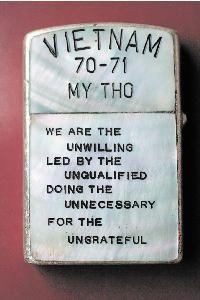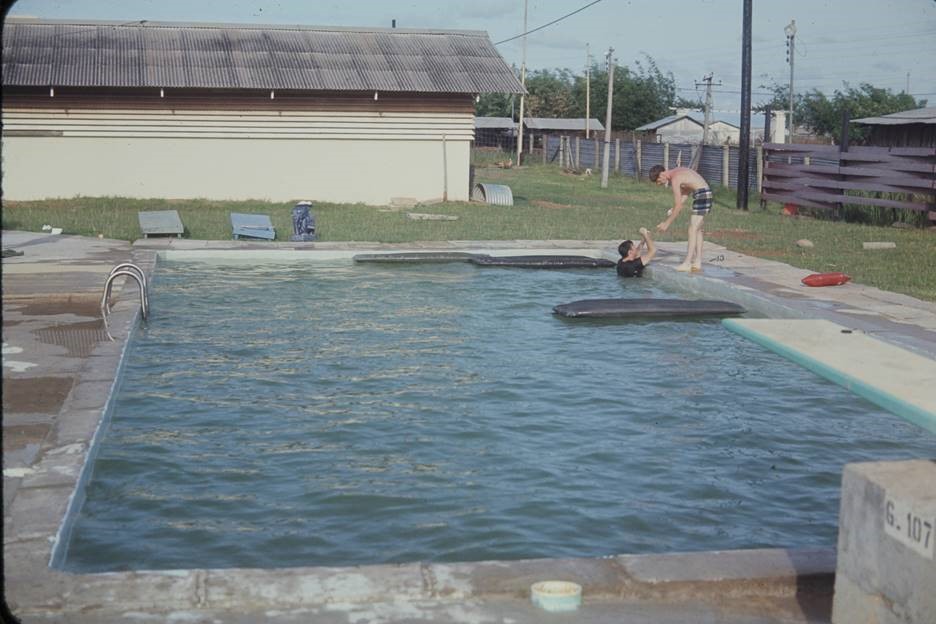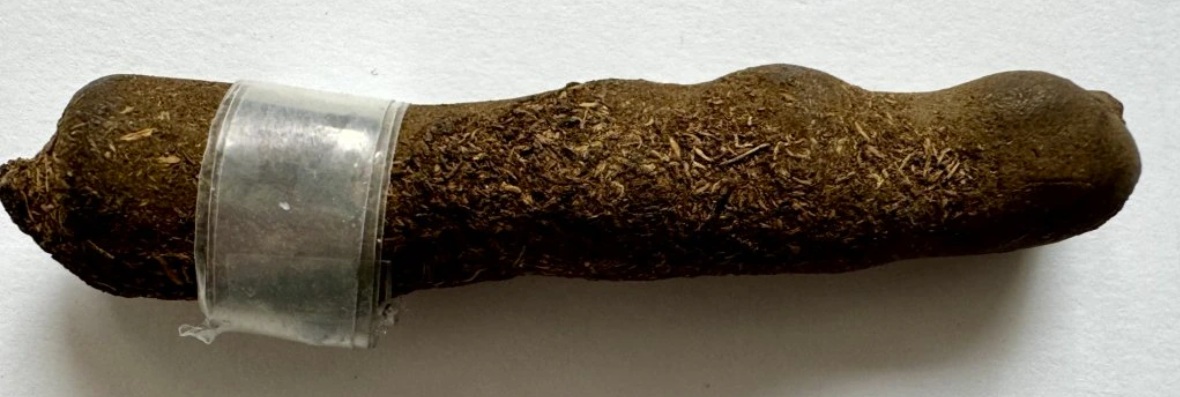So, how did I get interested in writing a screenplay about the Vietnam War?
I enjoyed my college years (as evidenced by the attached report of my senior seminar project), but soon after I graduated, I was inducted into the military. I served in the US Army in Vietnam in the “American War” during the period July 1970 through June 1971. I did not want to be there, having gotten married six months earlier to a woman who would have much preferred we move to Canada. Moreover, we both thought the war was unnecessary and being run by incompetent liars, not anything like the necessary World War II in which my father had served.
Before I was sent to Vietnam, I attended Army Engineering School and then served as a Basic Training Officer [during which time I helped hippies, guys who the other trainees would beat up at night (like in Full Metal Jacket), and other “misfits” obtain Section 8 discharges]. After I received orders to report to Vietnam, at my request, I was transferred to an Engineer unit at Ft. Lewis where I developed my scrounging skills to help out my company commander who had signed for equipment that he had not inventoried when he took over his unit. While there I wrote letters to draft boards in support of their granting conscientious objector status to college fraternity brothers. (Here is an example.) The results of the 1969 US military draft revealed that I would have been drafted and sent to Vietnam as a “grunt” when I graduated from college, rather than serving as a lieutenant due to my ROTC training during college.

In Vietnam, I was the Engineer Officer of MACV Advisory Team 91 in Binh Duong Provence and stationed at the Province Headquarters. I lived in a “hooch” in a small compound that was near the city of Phu Cuong with one or more other lieutenants. The infamous Viet Cong strong hold called the Iron Triangle was located just to the north and the infamous Cu Chi tunnels were located just to the west. My Vietnam counterpart was the Province Public Works Director, who had little use for advice from a young-for-his-age, unnecessary 22-year-old American lieutenant.
My duties involved visiting areas in which our team’s infantry officers would soon accompany South Vietnamese Army units on patrols and briefing the team about where Agent Orange defoliant had been sprayed and accomplishing tasks like pothole repair and painting a line in the middle of the road to our offices. I also had the duty of supervising the spraying of Agent Orange on the minefield that surrounded our compound (and our water well) for weed control. So, it was no surprise, when in 2016, I was diagnosed by the VA with an Agent Orange related (service-connected) pre-malignant condition. A little later, my Vietnam hooch-mate lost a kidney to renal cancer, probably due to his Agent Orange exposure.
I arrived in Vietnam just after my unit had participated in the Cambodian incursion and left just before deaths of team members began to occur. Vietnamization of the war was well under way when I got there. Other than a few mortar attacks, the situation was relatively calm. I vaguely remember that I was not required to take turns as duty officer in our team’s Tactical Operations Center, I think after it became apparent that I could not hear signals from “bugging the battlefield” sensors (like the TurdSID illustrated above) dropped along the Ho Chi Minh Trail.
I was selected to be the club officer for our unit’s commissioned officers’ and our enlisted men’s club, probably because I was the only sober officer at closing time and too “straight” to be corrupted by the position. I supervised a cadre of bar girls, interviewed and hired Vietnamese and Philippine entertainers, and purchased food on the local economy. I also scrounged special meals (like lobster tails) from other US units in the area. That activity allowed me to scrounge cash from local food sellers that a Seabee member of our team needed to pay his Vietnamese construction equipment operators after his funding dried up. After a very drunk lieutenant tried to shove the barrel of his 45 caliber pistol up my nose at closing time, I delegated much of the day-to-day management of the clubs to my sergeant.
I was very upset by President Nixon’s decision to resume bombing North Vietnam after they shot down one of our spy planes, so I wrote him and leaders in Congress and my State Legislature a letter expressing my concern. I even got a response from the State Department. I then agreed with the author of a 2024 book entitled The Vietnam War: A Military History, that by derailing the Paris peace talks on the eve of the 1968 presidential election “Nixon had forced the nation to fight for four more years, lost 28,000 more men, and spent more tens of billions of dollars to get the POWs back” only to get “the same deal that Johnson was about to get when Nixon and Kissinger dropped their monkey wrench into the peace process.” My screenplay is an allegory about the “waste, aimlessness, and folly” of that war.
Soon thereafter I was beaten up by one of our unit’s majors, who was drunk at the time. I forgave him because a friend of his had just been killed. (As the war was winding down, the Army had to lay off many majors because there were way too many of them around, a sentiment I share to this day.)

My “claim to fame” was that I led a volunteer effort (requested by our MACV team leader) to build a swimming pool for use by bored team members, personally scrounging (stealing) the construction materials from nearby supply depots and borrowing the equipment we needed for construction of the pool, including a concrete mixing truck. The goal of the effort was to improve the morale of the unit and keep our guys busy and off heroin. I was awarded a Bronze Star Medal for my “meritorious achievement” in improving the morale of our unit. (I was never sure if it was the work on the swimming pool or the food and entertainment that I was able secure for our clubs because I was not corrupt, or both.)
Having heard all my “war stories” thousands of times, my wife (to whom I wrote home every day) recently encouraged me to incorporate them into a screenplay. My screenplay, Six Flags Over Saigon, was inspired by my and others’ war stories and my experiences at college, and is based on my research about what was going on before and during the time I was in Vietnam.
Screenplay Development Documents
The following are links to documents that illustrate the development/evolution of this story. They are presented in chronological order, oldest to newest:
- 18 Questions 2016-05-16
- Beat Sheet 2016-09-16
- Scriptment 2016-10-28
- Treatment 2017-05-20
- Pitch 2018-04-12
Draft versions of this screenplay entitled Six Flags Over Saigon are presented (in reverse chronological order) at the link under the heading Screenplays (in a column to the left on the desktop version of this website).
Resources
The following are links to the resources I relied on in developing this story:
- Fraud and Corruption in Management of Military Club Systems
- Armed with Abundance: Consumerism and Soldiering in the Vietnam War
- Can the Nazis Be Funny? Can We Laugh at the Holocaust?
- Vietnam War Song Project
- Six Flags Youtube Song Paylist
- The Myth of the Addicted Army
- The Importance of Being Stoned in Vietnam
- The Vietnam Drug User Returns
- Study on Military Professionalism
- Dereliction of Duty: Johnson, McNamara, the Joint Chiefs of Staff, and the Lies That Led to Vietnam
- Paris Peace Accords
